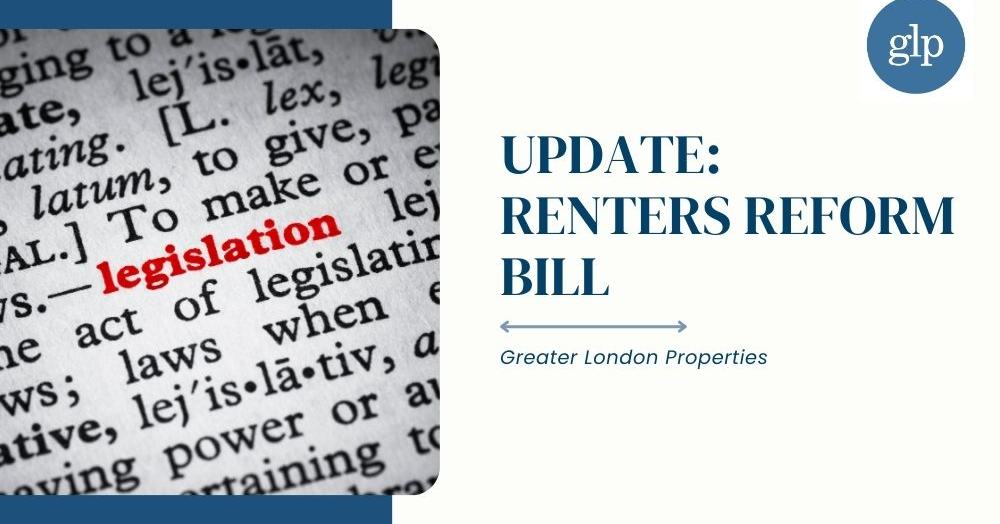The second reading has now taken place, leading the bill into the committee stage with no votes as of yet. On Friday 20th October, there was a report released with responses to recommendations raised by Levelling Up, Housing and Communities Committee....
Greater London Properties like to make it easy for our landlords to stay in the know about upcoming changes without having to go to much effort, so here is a summary of
some of these responses below:
Courts Need to be Reformed before Section 21 can be abolished.
‘The vast majority of tenancies end without the need for court involvement, and we expect that to continue after our reforms. However, for those difficult cases which do escalate to the courts, the government recognises the importance of making sure that the process is as smooth and efficient as possible.
Implementation of the new system will not take place until we judge sufficient progress has been made to improve the courts. That means we will not proceed with the abolition of section 21, until reforms to the justice system are in place.
The target areas for improvements include:
· digitising more of the court process to make it simpler and easier for landlords to use;
· exploring the prioritisation of certain cases, including antisocial behaviour;
· improving bailiff recruitment and retention and reducing administrative tasks so bailiffs can prioritise possession enforcement; and
· providing early legal advice and better signposting for tenants, including to help them find a housing solution that meets their needs.
We are also strengthening mediation and dispute resolution. This will give landlords stronger tools to resolve disputes before court action is needed.’
The government should retain fixed-term tenancies in the entire student housing sector but require all landlords letting to students to sign up to one of the existing government-approved codes of conduct.
‘The government recognises that the student market is cyclical – and that removing section 21 will mean landlords cannot guarantee possession each year for a new set of tenants.
We will therefore introduce a ground for possession that will facilitate the yearly cycle of short-term student tenancies. This will enable new students to sign up to a property in advance, safe in the knowledge they will have somewhere to live the next year.’
‘We think it is critical that tenants can move when their circumstances change. For example, tenants may need to move for work, when the tenancy is no longer affordable or, in more extreme circumstances.
It is expensive and inconvenient to move house – research (…) indicates the average moving cost to tenants was £1,400 per move in 2017. Tenants are therefore unlikely to move unless they really need to, particularly when they have recently started a new tenancy. Tenants will be able to give notice at any point during the tenancy to avoid replication of fixed terms.
A requirement of two months’ notice from the tenant, increased from four weeks’ notice, ensures that landlords have sufficient guarantee of rent and enough notice to find new tenants and avoid lengthy void periods.
Tenants will remain liable for the rent throughout the two-month notice period.’
We recommend that the government not abolish rent review clauses but make it a requirement that they stipulate by how much rents will increase.
‘The government wants to avoid very large rent increases being used as a backdoor to eviction, while ensuring that landlords can increase rents to market prices.
In the new system, landlords, as they can now, will be able to increase rents once a year at the rate they deem appropriate. It is only if a tenant thinks this is above market levels that they can challenge this at the First-tier Tribunal. When this happens, an independent expert panel will assess the market price for the property. This could be higher, lower or in line with what the landlord set.
The government is clear that rent should be agreed between the landlord and tenant, and nothing in our proposals prevents parties negotiating as they do now. It is not for government to set or steer rent increases and we do not support the introduction of rent controls. Evidence suggests that these would discourage investment in the sector and would lead to declining property standards as a result, which would not help landlords or tenants.
Rent review clauses can provide a means of backdoor eviction through removing the right to challenge above-market increases and may reduce flexibility for landlords to respond to market changes.’
There are also further comments on Taxation, The Landlord Database, Pets, Benefits and other changes which the renters reform bill bring with it.
Read here for more information. Or give us a call on
0207 113 1066 if you have any questions, are a landlord concerned about the bill or if you have a property you would like to let or sell. I would be happy to speak with you in more detail on this.
Best Wishes
Residential Lettings Director

